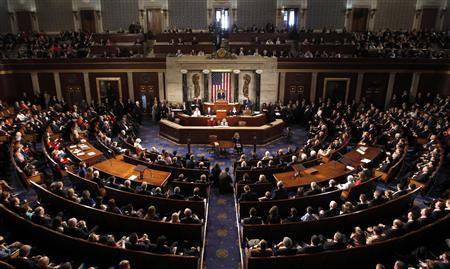For citizens of the United States, this has been the most entertaining—and for some, the most nauseating—presidential election in memory. Disgruntled voters are threatening not to cast their vote because they feel neither large-party candidate suits their interests, and the movement to vote third party is gaining steam, especially among millennial voters upset over Bernie Sanders’ loss in the primary. Not to mention there is a new scandal almost every day.
I will not hide the fact that I am a staunch Democrat who loves, supports, and has already voted for Hillary Clinton. However, aside from the two-party system and the public disapproval of both candidates, there is a glaring issue in this debate: Eventful presidential campaigns such as this one, which provide constant fodder for the hungry media, are overshadowing congressional races that are arguably more important for the future of the country. Voters must remember that the presidential candidates will not be the only names on the ballot on Nov. 8.
The current Congress has been dubbed the least effective in recent American history, and polls show it’s also the least popular. Partisanship within the House of Representatives and the Senate—and between the two Republican majority bodies and the Democratic presidency—have stalled legislation, and even forced a shutdown of the federal government in the Fall of 2013 due to a budget dispute.
The American system works best with some balance in Congress, and some willingness from at least one of the chambers to cooperate with presidential initiatives. Pundits from both sides of the aisle recognize that Republicans have made it their mission since the 2008 election to prevent legislation supported by Obama from passing into law. If Hillary Clinton wins the presidency, but is faced with a Republican-dominated Congress more conservative than the last, this will mean four more years of inaction. A more frightening scenario is a potential Trump presidency combined with a conservative Republican-dominated Congress, in which there would be no measure to stop him from pushing far-right legislation through both chambers.
This Election Day, all 435 seats in the House and 34 out of the 100 Senate seats will be contested. The House is likely to remain in a Republican majority, but there is a chance that Democrats could take control of the Senate. But even if Democrats manage to sweep the Senate, the 2018 electoral forecast looks especially grim for them. Republican voters tend to show up to midterm polls more reliably than Democrats, putting the latter party at risk of losing whatever majority they may gain. If the Democrats cannot hold the Senate in subsequent midterm elections, the Republicans would have no incentive to cooperate with a Democratic presidency, resulting in more obstructionism.
According to a poll conducted by the Pew Research Centre, some of the most important issues in this election are the economy, health care, gun policy reform, immigration, and social security. These are all topics that the next Congress will be producing legislation on—not the Oval Office. In fact, most of the issues that attract voters to third party candidates will be addressed through legislation. Free or more affordable higher education, changes to Obamacare and social security, and gun control policy cannot come out of an executive order—they must come from legislation drafted and voted on in Congress. The Vice President even has the potential to play a more important role than the president in his capacity as the tie-breaker in the Senate, in the case that the Republican-Democrat margin is a small one.
Furthermore, this upcoming Congress will have an important duty that the last did not: The Senate will have to confirm at least one Supreme Court nominee—and may confirm up to three—potentially changing the balance of the court for the next two decades. There is currently a name before the Senate for the Supreme Court, but Republicans have refused to have a confirmation vote while Obama remains in office. This appointment would determine the political leaning of the court by breaking the current four-four split between conservative and progressive justices. If Trump is elected president with a conservative Congress, the next Supreme Court justice could be a conservative who, among a myriad of other issues, could help the overturn of Roe v. Wade, reversing women’s right to have an abortion in the U.S.
There is a toxic trend in U.S. elections of inflating the office of the President far beyond its relative capacity. The President does not have, and never has had, the power to make laws or determine the national budget. This is not to say that the President does not matter—the next commander-in-chief has their work cut out for them. However, Clinton, Trump, Stein, and Johnson should not be the only names voters know when they go to the polls next Tuesday. This is especially true to those voters who feel alienated by the presidential race. There is more at stake on Election Day than just the Oval Office.









